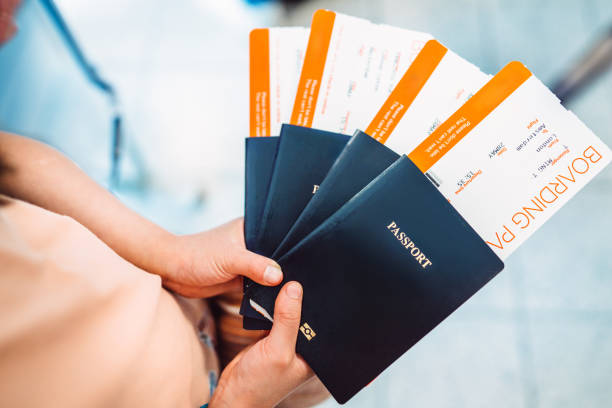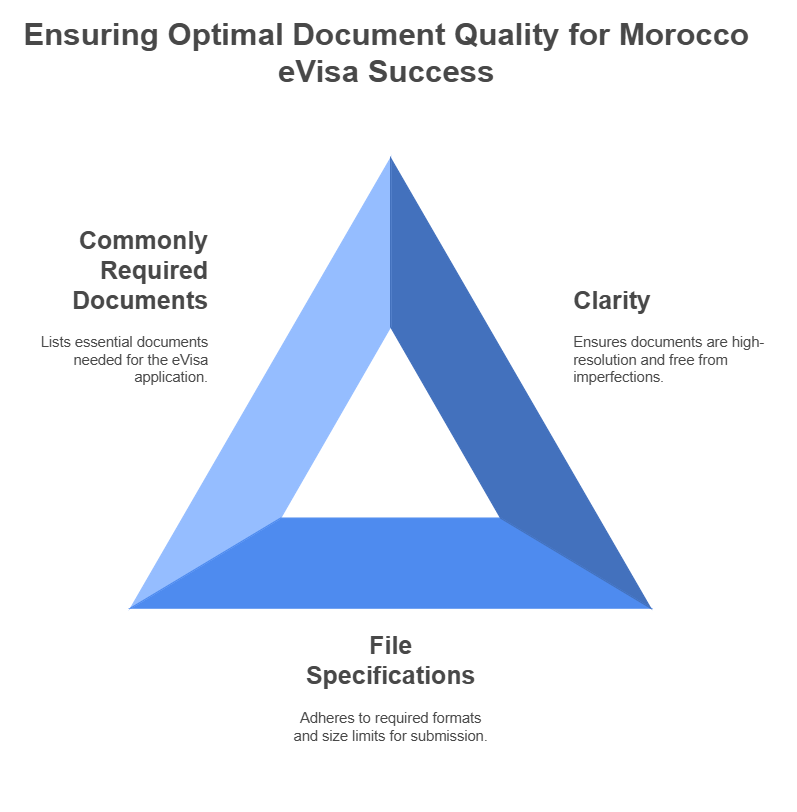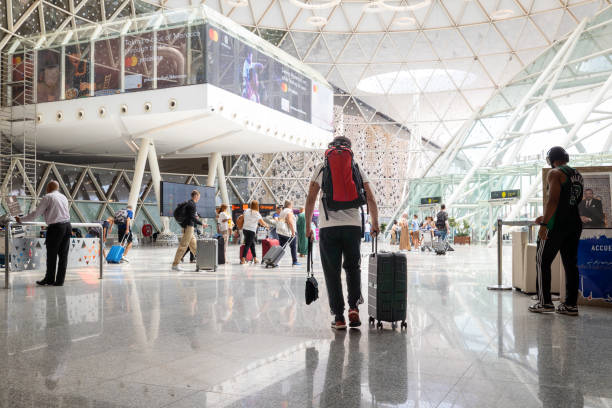Applying for a Morocco eVisa is relatively easy, but your preparation and attention to detail hold the key to a trouble-free experience. The following practical tips will help you sail through the application process without mistakes and get your eVisa as easily as possible.

Before you start your application for an eVisa for Morocco, you should first determine whether you are eligible. An eVisa is typically available to a select few types of travelers to make it easier for them to travel to a country, so knowing what the requirements are will be a very important initial step.
Eligibility for the Morocco eVisa:
One will have to meet specific residency or visa requirements by the authorities to be qualified for the Morocco eVisa. These are for ensuring the applicant has a valid travel authorization from recognized countries. Such an applicable visa or residence permit allows easier application, making it simpler and accessible to visit Morocco. Following are the essential residency or visa conditions the applicants must fulfill.
Multiple-Entry Visa (Valid for at least 90 days) from:
USA
UK
Canada
Australia
New Zealand
Ireland
Norway
Schengen countries
Japan
Residence Permit (Valid for at least 180 days) from:
Schengen Area countries
Australia
Canada
Japan
New Zealand
Norway
Switzerland
United Arab Emirates
United Kingdom
United States
By thoroughly reviewing the eligibility criteria and ensuring compliance, applicants can avoid unnecessary delays or rejection of their eVisa applications. If unsure about your eligibility, consult the official eVisa portal or contact the immigration authorities for clarification.
Your passport is one of the most essential documents to have for an eVisa application for Morocco, and it must fit specific criteria to prevent any inconvenience with the application process or at arrival.
Validity Period:
Sufficient Blank Pages:
Accurate Information:
Passport Condition:
By ensuring that your passport complies with these requirements, you will be setting a very solid foundation for a smooth eVisa application and travel experience to Morocco.

Having all the required documents at hand before starting your Morocco eVisa application is very important to ensure that the process goes through smoothly and efficiently. You will be able to compile your application without delays or interruptions if you have these documents ready. Below is a detailed guide on what you need to prepare:
By preparing these documents in advance, you minimize the risk of application errors, incomplete submissions, or processing delays. It also enables you to focus entirely on completing the application accurately.
The first step in the application process is to create an account on the official Morocco eVisa portal. This account will be the center of your operations regarding the eVisa, so it has to be both accurate and secure. Here's what you need to know:
Fill out the Morocco eVisa application form accurately, providing the following details:
Double-check all entries before submission to avoid errors that could delay or invalidate your application.
Uploading clear and correctly formatted documents is a crucial part of the Morocco eVisa application process. Even minor errors in document quality may lead to delays or outright rejection of your application.

Ensure Document Clarity:
Meet File Specifications:
Commonly Required Documents:
The time taken to verify document quality and format will pay off in smoother processing of your application.

Payment of the eVisa fee completes your application. Following secure payment practices will ensure that your transaction is processed without issues.
Ensure your card has sufficient funds to cover the eVisa processing fee.
Make sure your card is approved for international transactions if applying from outside the country.
Save a copy of the payment receipt or transaction confirmation as proof of payment.
This document may be required for future reference or to resolve any payment-related issues.
A thorough review of your application before submission can prevent common errors and potential rejections.
Care must be taken to avoid errors when submitting an eVisa application to Morocco. Mistakes lead to delays or even denial, and thus one should ensure attention to detail.
Wrong passport details: Before sending your application, double-check that the passport number, issue date, and expiration date are all correct. A mistake here means instant disqualification.
Unclear or incomplete documents: Ensure that all the documents scanned are clear, well-formatted, and include all the required pages. Any missing or unreadable information may lead to delays.
Missed Deadlines: Knowing the length of time for processing and the deadlines for submission will help one avoid last-minute rushes, which may leave little time to resolve any unexpected problems.
Being very careful with the application process will save one from unnecessary setbacks and ensure a smoother process.
Once the Morocco eVisa application is submitted, its tracking becomes an important part in keeping one updated for any possible issues to be solved as soon as possible.
Keeping track of your application ensures you’re prepared for the next steps and avoids unnecessary stress.
Planning your Morocco eVisa application during peak travel times requires additional foresight, as processing delays can occur due to high application volumes.
Apply Early: Apply early, as the application should be submitted at least three weeks in advance but well before your intended travel date.
Standard vs. Expedited Processing: While it generally takes 5-10 business days for applications to be processed, delays may affect this during busy periods. Look for expedited processing when available and necessary for travel.
Plan Around Seasonal Surges: Anticipate more applications during holidays, events, or tourism seasons in Morocco. It is advisable to plan earlier to avoid disrupting your travel arrangements. Having a proactive attitude toward the application timeline enables you to keep your trip to the desired destination smooth and stress-free.
Scanned Copy of Your eVisa: Once your Morocco eVisa has been approved, it will be sent to the email address through which you applied. It is necessary to print an electronic visa and have it with you at all times during the journey. Border control might ask for this document upon your arrival in Morocco. Further, it's a very good idea to keep digital copies on your phone or other digital media. This means you have your eVisa when the printed copy gets lost, which gives you security on your trip.

Before traveling to Morocco, familiarize yourself with the country's entry and exit requirements. Entry and exit rules are guidelines that detail what a traveler is expected to do upon arrival for smooth immigration. Remember that the Morocco eVisa allows a stay of up to 30 days and is valid for 180 days. Breaching these conditions-including overstaying your visa-may result in fines or even problems with subsequent trips. Informed awareness will help you avoid unnecessary problems with the Moroccan border controls.
If your application for an eVisa to Morocco gets denied, do not be alarmed. First, you will need to carefully go over the reason for denial provided by the Moroccan authorities. The most frequent errors include incorrect information, not clear documents, and unfulfilled eligibility criteria. When this problem has been identified, it is time to make the relevant corrections and resubmit your application. If this would offer additional support, contacting the Moroccan consulate can be useful for a few tips on improving one's application. Attending to the errors from a previous submission shows detail and will better your chances upon the second try.
During the Morocco eVisa application process, authorities may occasionally request additional documents or clarifications to verify your eligibility. It is crucial to respond promptly to such requests, ensuring that all provided materials meet the specified format and quality requirements. Delays in responding or submitting unclear documents can prolong the processing time or even result in rejection. To avoid such setbacks, regularly monitor your email and the eVisa portal for updates on your application status.
Planning travel to work with visa issuance and period of stay involves being on the exact target in line with the visa period. Traveling to Morocco aligns when an applicant makes landfall inside this 180 days. Then, leave prior to this 30 days maximum granted period for validity and authorized length of your visit:. Overstaying your visa incurs fines, problems with future applications, or denial of re-entry. Keeping within these timelines ensures you are in compliance with the immigration rules of Morocco.
If you have any problems or uncertainties with your application for a Morocco eVisa, then do not hesitate to ask for help from credible sources. Application requirements and procedures can best be clarified by the immigration authorities of Morocco or the official eVisa support team. Third-party services not officially affiliated with the Moroccan government should be avoided, as they may provide incorrect information or charge for services that are otherwise free. Relying on official resources ensures accurate advice and protects your personal information.
Content Disclaimer: While this information was last updated in January 2025, we strongly suggest confirming all travel details with the appropriate governmental agencies, embassies, and airlines.
Step1: Complete the online application by entering your passport details.
Step2: Make the payment online using a credit card.
Step3: Check your email for the payment confirmation and receive your e-visa.